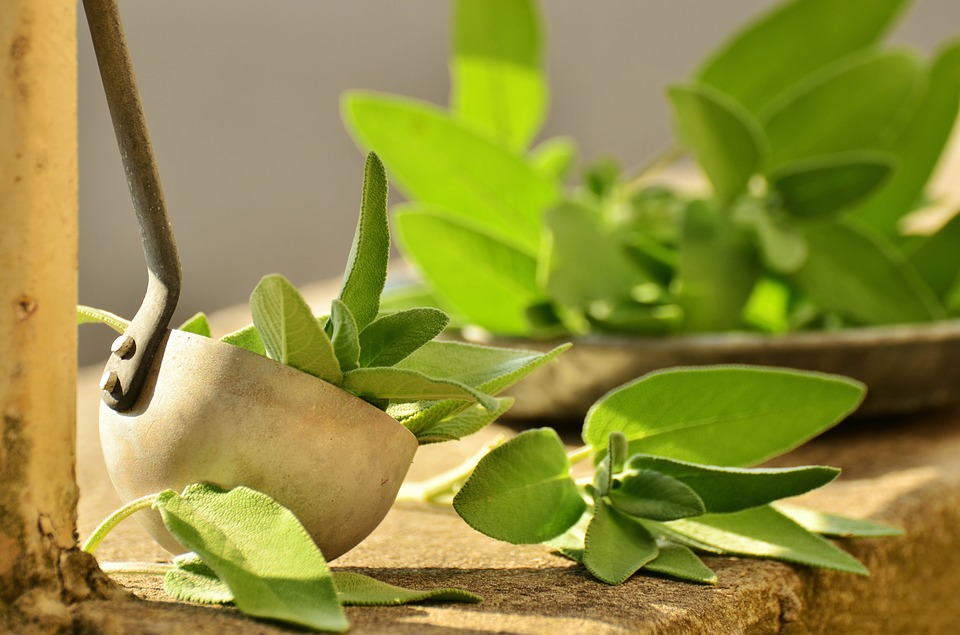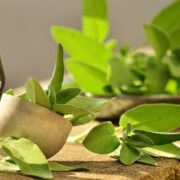Marimieh: The Green Gold of Middle Eastern Herbal Teas

Marimieh: The Green Gold of Middle Eastern Herbal Teas
In the Middle East, one of the most beloved and respected plants, passed down through generations, is marimieh (Arabic: ميرمية), known in English as sage. But this isn’t just the culinary herb we sprinkle on roasted dishes—here, marimieh is considered a true natural elixir, deeply rooted in traditional medicine, especially known for its use in tea and its wide range of health benefits.
What is Marimieh?
Marimieh is an aromatic plant from the Lamiaceae family, with a strong, balsamic scent reminiscent of rosemary and mint. Its gray-green, velvety leaves are packed with essential oils and are typically dried and stored for various uses.
Across the Arab world, marimieh is far more than just a spice: it’s a medicinal herb, a household remedy, and a symbol of care and wellness.
Marimieh Tea: A Daily Ritual
In countries like Jordan, Palestine, Syria, and Lebanon, marimieh is often used to prepare a fragrant, soothing tea, commonly served to guests as a sign of hospitality.
How it’s made:
- Water is brought to a boil.
- A pinch of black tea (optional) and a few dried marimieh leaves are added.
- It’s steeped for a few minutes.
- Sugar or honey is added to taste.
The result is a slightly bitter, herbaceous drink with a calming aroma and a comforting warmth.
Health Benefits of Marimieh
Marimieh is treasured for its antibacterial, anti-inflammatory, and digestive properties. Its most notable benefits include:
- Relieving menstrual cramps – a traditional go-to remedy for women during their cycle.
- Supporting digestion – commonly consumed after meals to prevent bloating and stomach discomfort.
- Soothing sore throats and coughs – often used as a gargle for oral health.
- Calming the nervous system – helps reduce anxiety and mild insomnia.
- Acting as an antioxidant – helps fight free radicals and boost immunity.
Traditional Remedies and Uses
Besides being sipped as tea, marimieh is widely used in Middle Eastern folk medicine:
- Boiled leaf compresses to soothe joint pain and inflammation.
- Steam inhalations to clear the sinuses and ease respiratory issues.
- Mouth rinses with marimieh infusion to treat canker sores or gum inflammation.
- In some households, burning dried marimieh like incense is believed to purify the air and ward off negative energy.
Fun Facts and Cultural Tidbits
- There’s a common saying in many Arab homes: “If you have marimieh, you don’t need a pharmacy.”
- In Palestinian culture, marimieh is called the “mother of all herbs”, showing its deep-rooted importance.
- While incredibly beneficial, pregnant women are advised to avoid it during the first trimester as it may stimulate the uterus.
- Marimieh is often gifted in traditional ceremonies as a token of protection and good fortune.
- In local markets (souks), you’ll frequently find vendors selling ready-to-brew marimieh tea or fresh bundles of the plant.
In Conclusion
Marimieh is much more than a simple herb—it’s a cultural symbol, a healing plant, and a gesture of care. In an increasingly fast-paced world, the act of preparing a cup of marimieh tea reconnects us to a slower, more intentional rhythm of life rooted in tradition and wellness. If you haven’t tried it yet, it’s definitely worth discovering.


